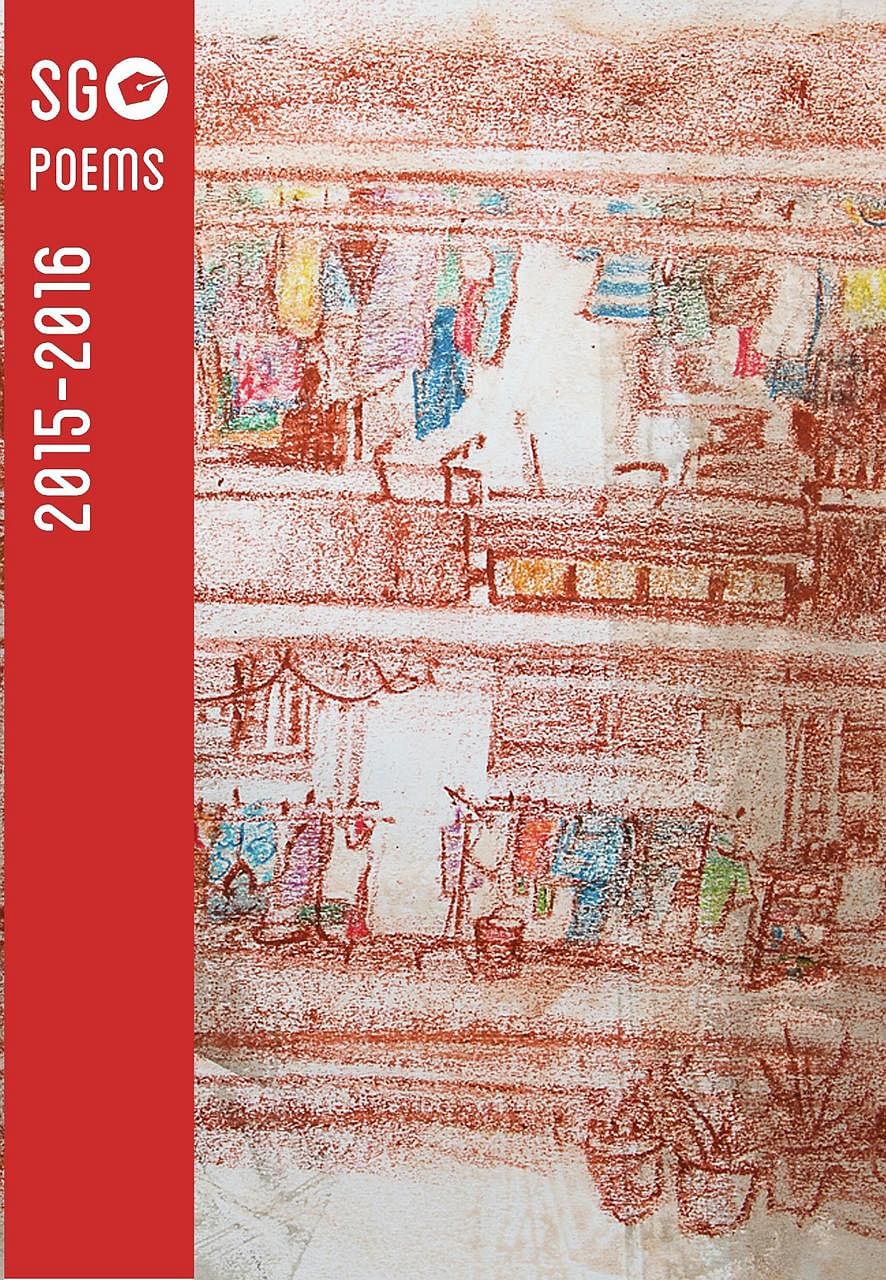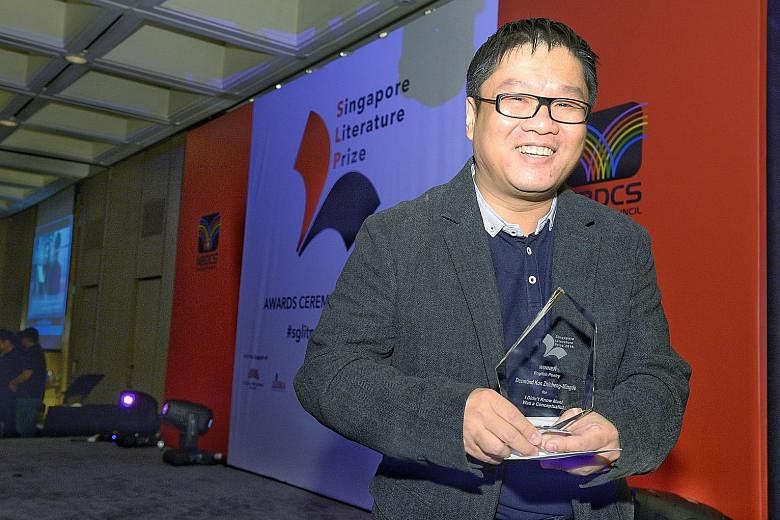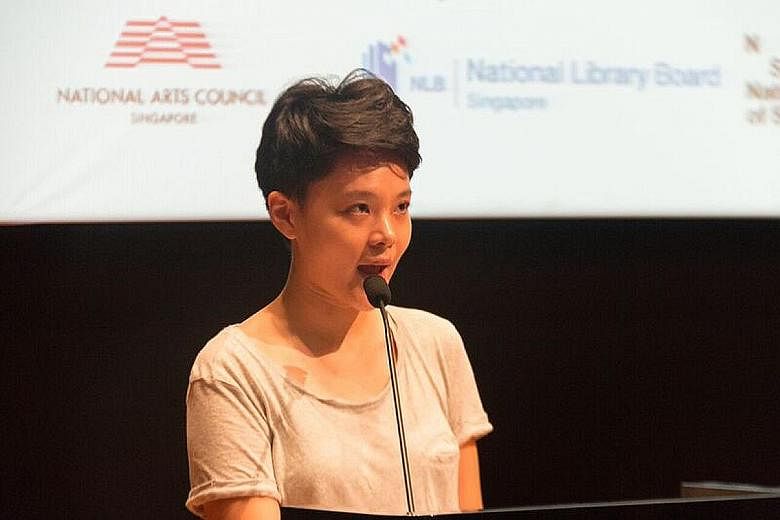Mynahs scrabbling around on kopitiam floors, pecking away at stray flakes of prata. An ode to a Chinatown since washed away by waves of redevelopment.
Singapore in all its glory - its rich sights and sounds, its quirks and hidden histories - thrums through a new anthology of poems that will be launched tonight at the National Library Building.
The National Poetry Festival's SG Poems 2015-2016 anthology showcases Singapore poetry written in, or translated into, English in the past two years.
Among the 78 poems are shortlisted and winning entries from the festival's National Poetry Competition, which had its second run this year; works from poets who had collections out in the last two years; and pieces from poets featured at the inaugural edition of the festival last year.
The anthology, published by Ethos Books, is a diverse display of talent, uniting poets both seasoned and green.
Festival president Eric Tinsay Valles says the collection introduces new voices - who contributed about 60 per cent of the works - as well as comprises the works of poets such as Cultural Medallion recipient Dan Ying, which have been originally published in mother tongue languages.
"Poetry may be enjoying a boom of sorts on the island, but there is still plenty of room for new talents and writing that is not readily available in English," says Valles, 48. "There are many gems in the writings of Chinese, Malay and Tamil poets."

One of the fresh voices on the scene is 23-year-old Ruth Tang, who works at independent bookstore BooksActually and literary non-profit collective Sing Lit Station.
She started dabbling in poetry in 2007, but got serious with it in 2014.
Her poem, Ghost Apples, draws from the mismatch of two worlds: one she found in the Enid Blyton and C.S. Lewis books she read as a child, a wholly British world "populated with English children, who had white night dresses and governesses and strange breakfasts; and the other, the reality she found herself in, which had nothing of the sort".
"I'm excited to be a small part of the beginning of something with 'national' and 'poetry' in its name," says Tang. "And I'm interested to see how this yoking together works out since poetry has never needed the nation and the nation has never admitted that it needed poetry."
Meanwhile, author and artist Desmond Kon, whose poetry collection, I Didn't Know Mani Was A Conceptualist, was a co-winner in the English poetry category of this year's Singapore Literature Prize, has his "love song for a nation", Voices In The Round, included in the anthology.
It was penned for the Singapore Youth Festival's 50th anniversary this year.
"Many people were surprised that I, being so experimental in my poetry, was approached to pen the lyrics. I grew up singing in school choirs, so I was aware of the beauties and demands of the music," says Kon, 45.
"I wrote the song with metered lines and end rhymes, so much so it could be sung in rounds, but the printed version has enjambments that fracture the poem, creating a more layered read on the page. It was fun letting people know I could write a song for such a mainstream audience."
Valles says the anthology shows that Singapore and its poets are questioning the limits of the poetic form.
"There is greater boldness in experimenting with styles and theories as well as a drive to initiate change," he says.
"There are plenty of references to familiar scenes and characters such as the samsui women and karung guni men. But there are also subtle social commentaries and reflexive work on the nature of poetry."
Since its start last year, the festival team has been hard at work getting people excited about poetry. Its efforts are wide- ranging, from a children's poetry competition to poetry readings with migrant worker poets.
In July, about 1,100 participants turned up for the festival over a single weekend, up from almost 700 last year.
It has more plans, including bringing renowned writers from the region to Singapore.
There is, after all, a hunger for poetry - "with adequate packaging" - among ordinary people, says Valles.
"Poetry can have a wider appeal in a mash-up with film or the other visual arts and in collaboration across languages.
"As poet Lee Tzu Pheng mentioned at the festival's opening night in July, poetry tends to scare the general reading public because it is often incomprehensible, impenetrable and thus avoided," he adds.
"Painted in oil or about experiences that echo those of the public, poetry need not spook the heartlanders. From there, they can go on to more challenging verse."



